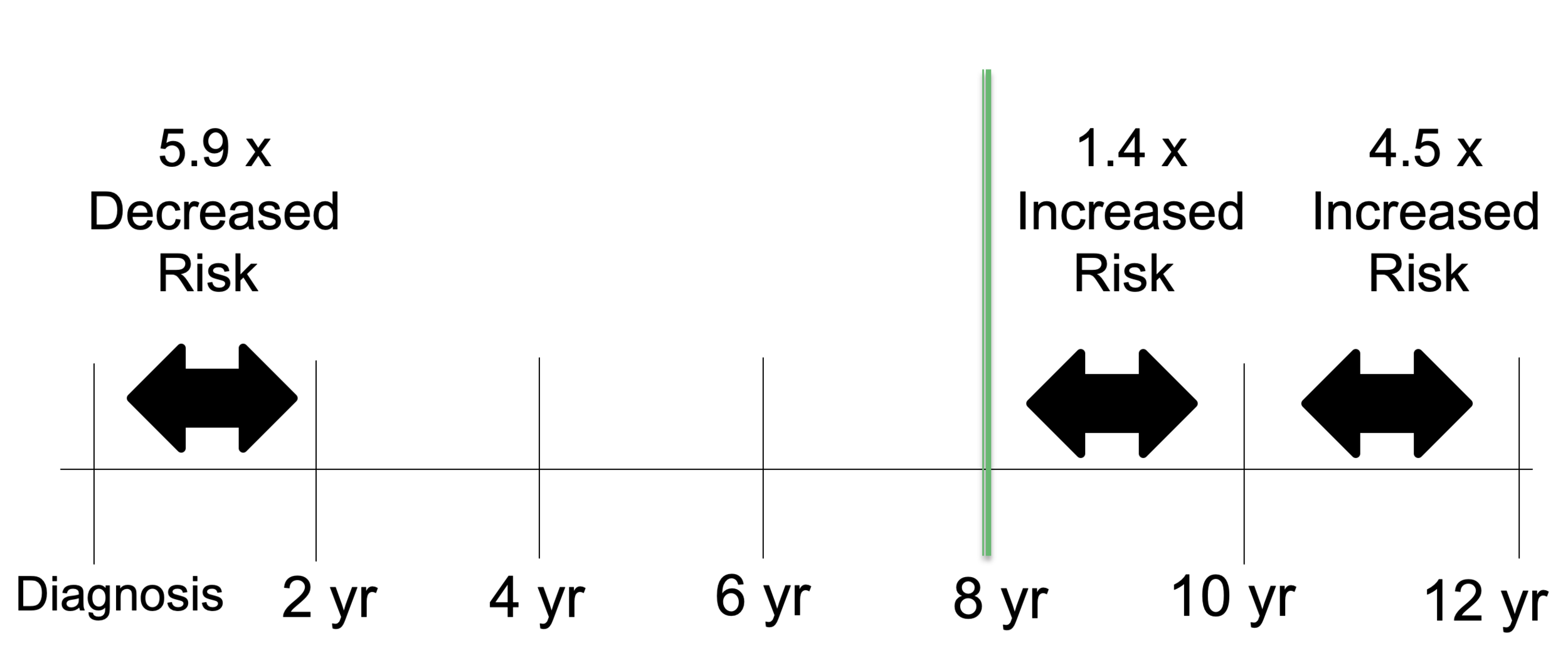Are Patients with Alopecia Areata at Increased Risks for Heart Attacks?
A New study Suggests After Many Years of AA, Risk of Heart Attacks May Increase
Recent studies are emerging which suggest that patients with alopecia areata may be at increased risk for heart disease. A study by Conic and colleagues, for example, suggested that patients with alopecia areata had elevated prevalence rates of several conditions including hypertension, diabetes, and hyperlipidemia, coronary artery disease, atrial fibrillation and stroke.
New Study From Korea Highlights Unexpected Pattern of Heart Attack Risk
A new study from Korea suggests that the risk of patients with alopecia areata having a heart attack depends one how many years have transpired since one’s receipt of a diagnosis of alopecia areata.
The authors performed a retrospective cohort study looking at patients 30 to 89 who were diagnosed with alopecia areata between 2006 and 2017. Data was compared to age and sex matched controls.
Thee researchers identified 228 886 patients with AA in their study and compared data to 4 577 720 matched controls without AA.
In the first few years after a diagnosis of AA, the risk of acute myocardial infarction (heart attack) was actually found to be lower in patients with alopecia areata than controls. For example, the rate of heart attacks was 2 fold lower between years 2-4 after a diagnosis than the rate of heart attacks in control patients. As time went one, the risk of heart attacks in patients with alopecia areata increased more and more and eventually the risk of heart attacks became greater for those with alopecia areata than controls. For example, between years 8-10 after their original diagnosis, patients with alopecia areata were found to have a 2 fold greater risk of having a heart attack than controls. Between years 10-12 the risk was 4.5 fold higher.
Conclusion and Summary
This is a really interesting study which sets the stage for further good studies in alopecia areata. It also helps us all understand why some alopecia areata studies might suggest reduced risk of some types of heart disease if patients outcomes are examined too early in the disease course and other studies might show increased risk if examined later.
A new era of research is now unfolding which suggests that patients with alopecia areata may be at increased risk for various cardiovascular outcomes. This study adds to that important body of knowledge and will undoubtedly be viewed years down the road as a key early study.
Many questions remain unanswered. Alopecia areata has not traditionally been thought to affect lifespan. In other words, patients don’t die sooner than others on account of having this disease. I’m not sure if this data truly is reliable. Of course, it might be. If it is, the question arises why an increased risk fo heart disease and heart attacks does not translate into more deaths.
More studies are needed to better understand the risk of heart disease in patients with alopecia areata and how we can best reduce associated risks.
Reference
Conic RRZ et al. Prevalence of cardiac and metabolic diseases among patients with alopecia areata. JEADV 2021 Feb.
Lee et al. Alopecia areata is not a risk factor for heart diseases: A 10-year retrospective cohort study. PLoS One. 2021.
Shin JW et al. Time-Dependent Risk of Acute Myocardial Infarctionin Patients With Alopecia Areata in Korea. JAMA Dermatol. 2020 Jul 1;156(7):763-771.
This article was written by Dr. Jeff Donovan, a Canadian and US board certified dermatologist specializing exclusively in hair loss.

